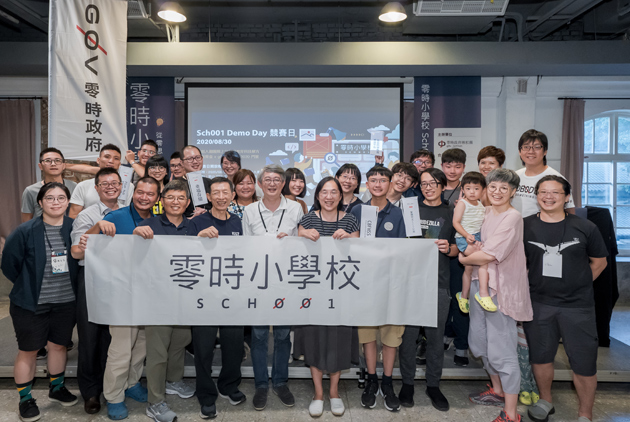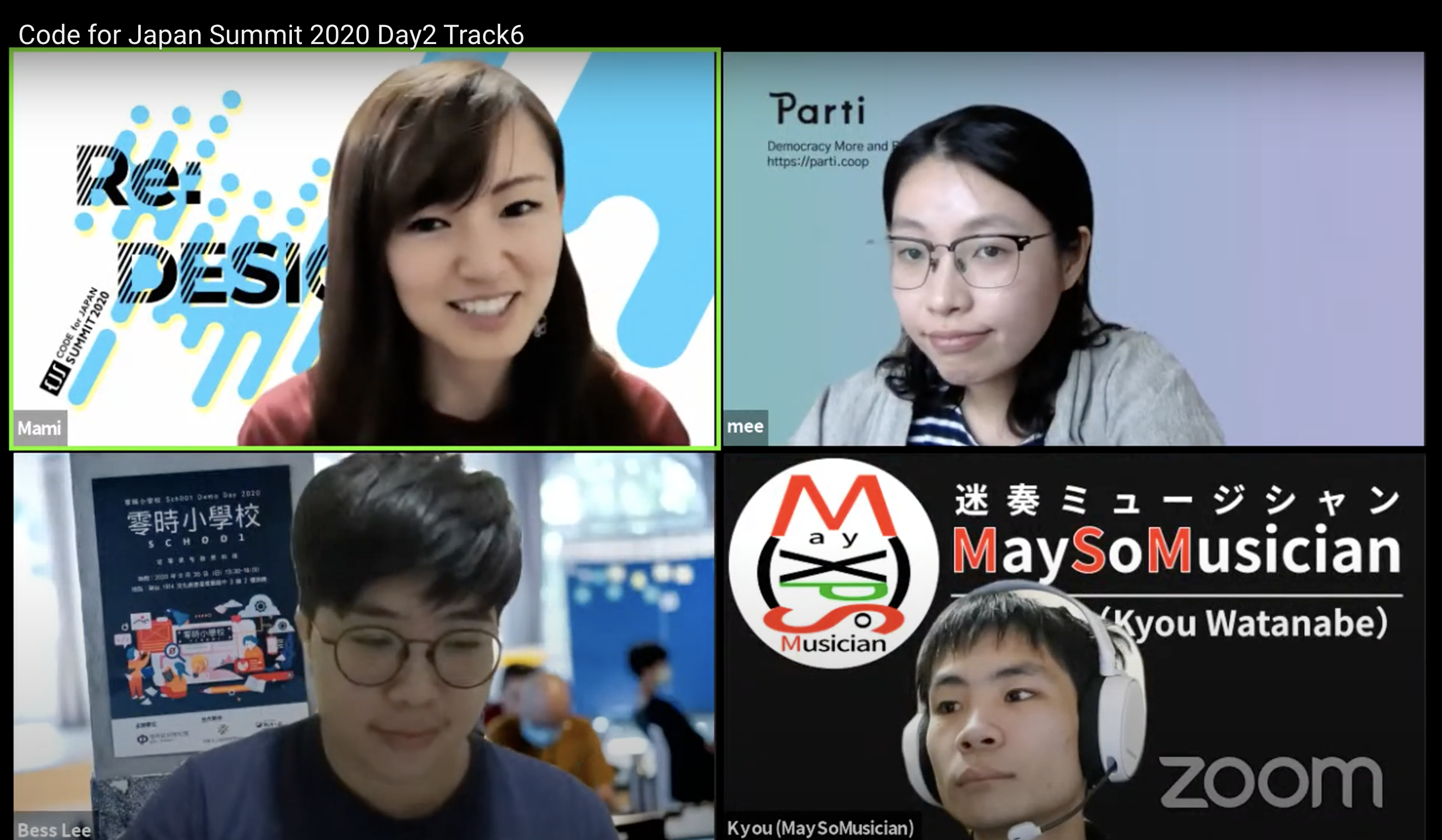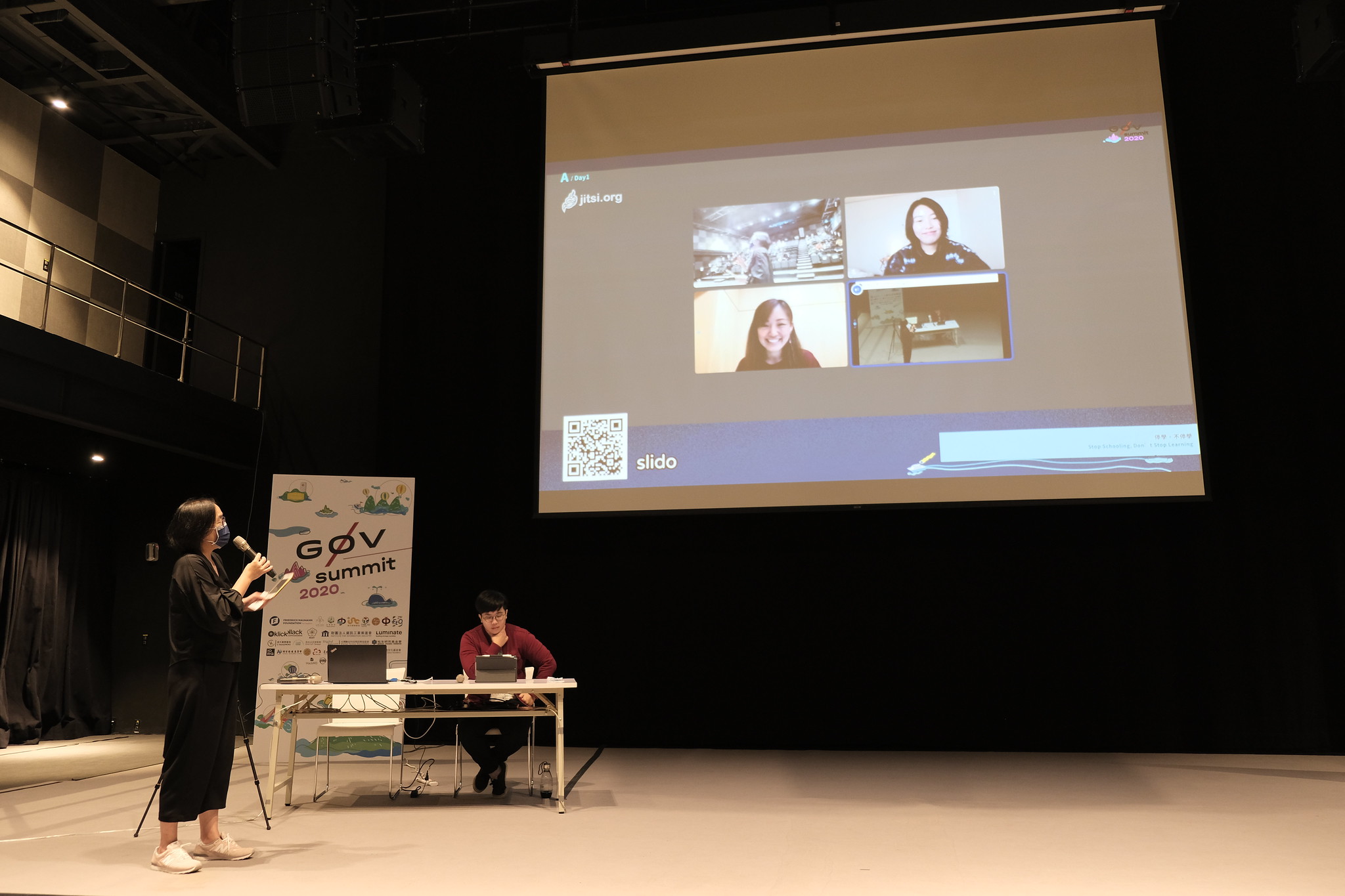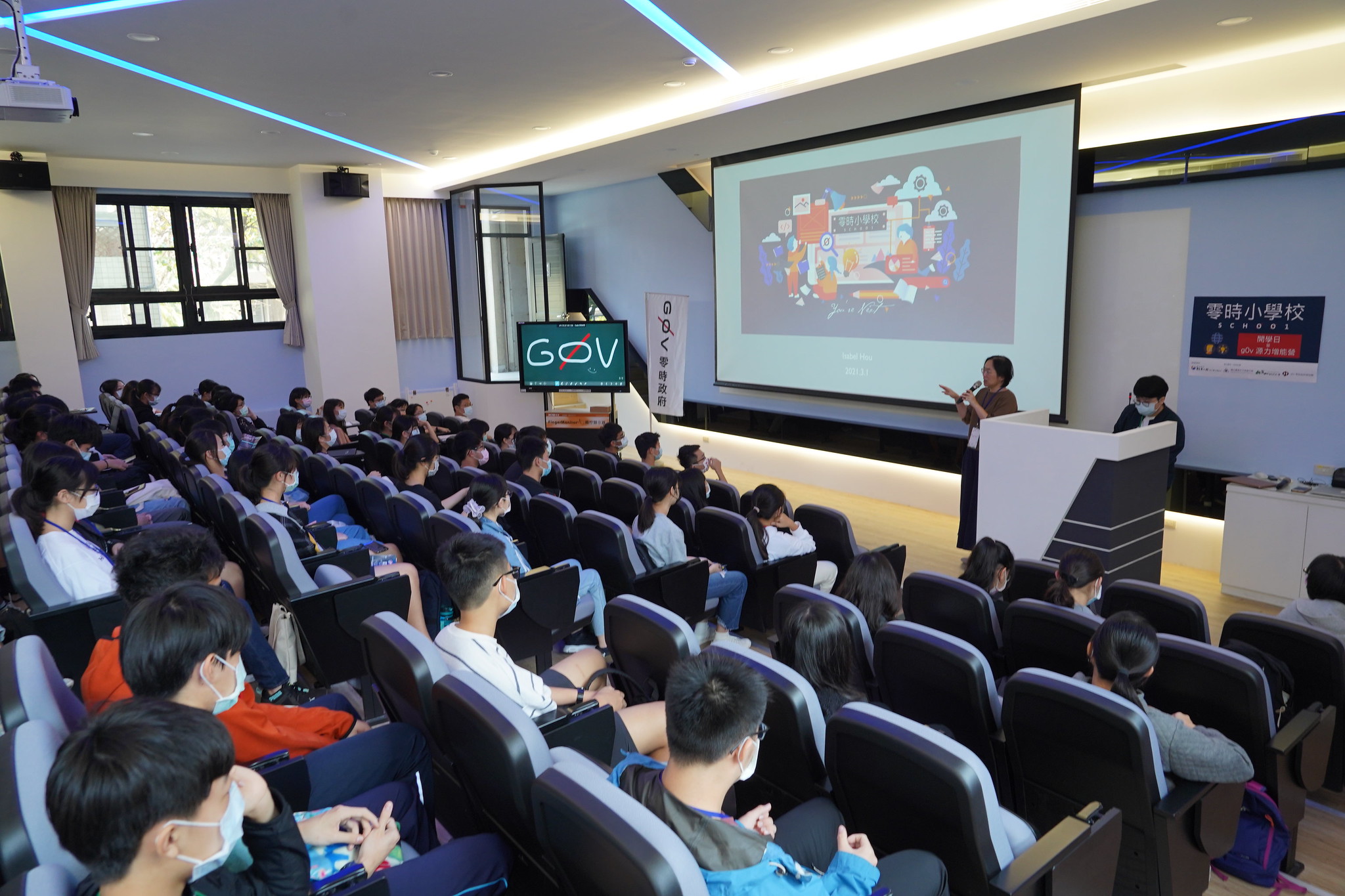Don’t stop learning, start schooling with Sch001

Source:CC BY 2.0 powered g0v.tw
The pandemic has forced millions of students globally to stay home. How the g0v jothon team in g0v collaborated with civic tech forces across East Asia to make strides towards improving education.
Views
Don’t stop learning, start schooling with Sch001
By Bess Lee (g0v jothon)web only
Educational environments around the world have been radically transformed since 2020.
With education being such an important task for society, fundamental changes typically take hundreds of years. COVID-19, however, has caused many schools to close down and forced millions of students globally to stay home.
We cannot afford to make these students wait until schools reopen to resume their regular learning. In our last article, we discussed how the g0v Hackathon was taken online. This time, we want to talk about how the g0v jothon team in g0v collaborated with civic tech forces across East Asia to make strides towards improving education.

Code for Japan Summit 2020 Online. (Source: g0v jothon)
In 2020, the g0v jothon team began the "Sch001" project, attempting to introduce educational concerns to the g0v community, whilst also bringing the community's open source ideals into school environments. This has been done under the banner of "learning from the open source community". There have been many difficulties throughout this project, but we have not faced these alone. Civic tech communities in Japan and South Korea have also attempted similar projects and faced similar difficulties. We have thus tried to learn from each others' experience throughout the Sch001 project.
Educational environments in Taiwan, however, have remained largely unchanged by the global pandemic. Students, teachers, engineers and designers could still interact in person at Sch001 workshops, where we shared our experiences and worked together on practical project ideas. On Sch001 Demo Day in August 2020, we selected 6 projects to focus on. These fall into three categories:
- Language and literacy resources: "Traditional Chinese CC0 corpus and Mozilla Common Voice database" and the "Literacy Practices Database".
- Student-educator interactive platforms: "Dao Dao Online Learning Platform" and "CoTeach"
- Practical tools to help students and educators: "Happiness Bankbook" and "Chatbot for High School Students".
 (Source: g0v Summit 2020 photography task force CC BY 2.0 powered by g0v.tw)
(Source: g0v Summit 2020 photography task force CC BY 2.0 powered by g0v.tw)
Japan's Code for Japan has also introduced projects to make remote learning easier for students and teachers, including a education platform "Study At Home” and a resource database for teachers called “Class Tech Lab". They have also launched a fully-digital civic tech challenge (Civictech Challenge Cup [U-22]) for the youth. Meet-ups, team building and final presentation are also done fully online. The winner of this cup was "Civichat".
The Korean EduTech services were growing fast as online schooling communication platform after the pandamic. Some Korean edutech teams began thinking about practical platform with government and Korea Educational Broadcasting System, as online schooling platforms became the site of most educational activities for Korean students.
Korean civic tech group Parti Co-op has developed open source platforms called "Parti Democracy Platforms" to allow students and educational stakeholders to practice deliberation and collect opinions about online schooling and university tuition refund (Online schooling sphere on Parti Townhall). They have been youth online community projects to collaborate and host workshop through open-source tools, wherein students can learn and do social actions by their own open source projects (Youth punch community building on Parti Canoe, Parti Democracy Activists School on Parti Democracy Platform, “Apart and Together in New Normal” project).

Code for Sch001ing at Tainan. (Source: CC BY 2.0 powered g0v.tw)
In 2021, in addition to continued collaboration with South Korea and Japan, the g0v jothon team has kickstarted the “Code for Sch001ing'' project, and has plans to host six camps at schools across Taiwan. By inviting more students and educators to use the platforms we've built and promoting them to create solutions to education problems they face, we hope to give students the tools they need to start their own projects and become collaborators with the g0v community.
As well as hoping to solve problems and build tools, the motivating force that has driven civic hackers across the world to engage with educational technology is a desire to promote self-study and continuous self improvement. The role that technology plays, or can play, in education is a key issue. The g0v jothon team redoubles its efforts and engagements with education, hoping to find more partners and help contribute to creating a better educational environment for all.
References:
Sch001 Website
Sch001 2020 Final Report
Sch001 @ g0v Summit 2020
Have you read?
♦ How the open source “jothon online” collaborated during the pandemic
♦ Why Is Taiwan’s Major Civic Hacking Conference Moving South?
♦ APSIS 2021: Impact investment comes of age
Translated by Sam Robbins
Uploaded by Penny Chiang






